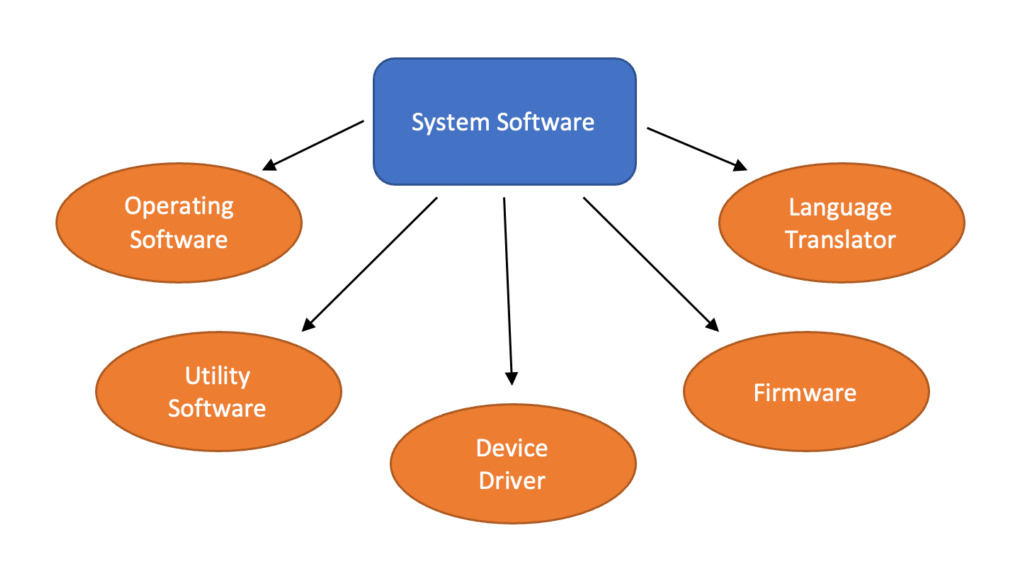Types of Software with Examples: Understanding System and Application Software
In Nigeria’s rapidly growing digital economy, software powers everything from browsing the internet to running businesses, and even fueling artificial intelligence innovations. Knowing the different types of software—from system software to application software—gives Nigerian companies and individuals insight into how technology drives efficiency, innovation, and productivity across sectors.
Understanding Software: The Core of Nigeria’s Digital Systems
Software is a collection of instructions and programs that tell a computer or device what to do. System software runs behind the scenes, managing hardware and providing platforms for applications, while application software empowers users to accomplish tasks such as word processing, designing, and communication. For example, operating systems like Windows or Android enable devices to function, whereas software like Microsoft Word or WhatsApp helps users in daily activities. Nigerian businesses that grasp this hierarchy can better leverage technology for smoother operations.
System Software: The Foundation of Computing in Nigeria
System software forms the backbone of computing, managing hardware resources and providing the environment for applications to run effectively. Key examples include:
- Operating Systems: Windows, Linux, macOS, Android—managing memory, files, and devices to support user interaction.
- Utility Programs: Antivirus tools like Norton, system cleaners like CCleaner that protect and optimize device performance.
- Device Drivers: Software that enables hardware like printers, graphics cards, and network adapters to communicate with the operating system.
Understanding system software is critical for Nigerian companies as it ensures seamless hardware-software integration essential for business continuity.
Application Software: Tools Empowering Nigerian Users and Businesses
Application software allows end-users in Nigeria to interact with technology to achieve real-world objectives. Examples include:
- Productivity Suites: Microsoft Office, Google Workspace facilitating document editing and collaboration.
- Creative Tools: Adobe Photoshop, CorelDRAW, and Canva supporting designers and content creators.
- Communication Platforms: WhatsApp, Zoom, Slack enabling efficient business and personal communication.
- Business Software: QuickBooks, SAP, Zoho Books automating accounting, HR, and inventory management.
- Popular Apps: Instagram, Netflix, Amazon catering to entertainment and e-commerce needs.
Together, these applications help Nigerian businesses boost productivity and enhance customer engagement.
The Middle Layer: Middleware Connecting Systems and Applications
Middleware acts as a crucial bridge enabling smooth communication and data exchange between system software and applications. In Nigeria’s emerging tech scene, examples include:
- Database Middleware: MySQL and Oracle connectors facilitating data access.
- Messaging Middleware: Kafka, RabbitMQ enabling real-time information flow in distributed systems.
- Web Servers: Apache, Nginx managing web traffic between servers and applications.
Middleware supports Nigeria’s growing digital infrastructure by ensuring software ecosystems function cohesively.
Industry-Specific Software Transforming Nigerian Sectors
Tailored software meets the unique demands of Nigerian industries, enhancing sectoral performance:
- Healthcare: Electronic Health Records (EHRs) like Epic improving patient data management.
- Education: Learning Management Systems (LMS) such as Moodle enabling remote instruction.
- Fintech: Apps like PayPal and Moniepoint facilitating secure digital payments.
- Real Estate: Property management platforms like Buildium enhancing client-agent interactions.
Custom software adoption is pivotal for Nigerian companies aiming to remain competitive in a digitized economy.
Artificial Intelligence: Revolutionizing Software Across Nigeria
AI-powered software is reshaping the Nigerian digital landscape from system-level automation to application-level innovation. Examples include:
- Virtual Assistants & Chatbots: Enhancing customer service experiences.
- Predictive Analytics: Driving data-informed business decisions.
- AI Design Tools: Automating content creation and UX improvement.
As AI advances, Nigerian businesses have new opportunities to innovate beyond traditional software boundaries.
Choosing the Right Software for Nigerian Companies
Selecting software—from system to application—depends on business size, goals, and industry requirements. SMEs in Nigeria benefit from cloud-based applications, while larger firms invest in bespoke enterprise software. Seamless integration across system software, middleware, and applications ensures efficient and secure business operations.
Conclusion: Partner with Techvantage Innovations for Nigeria’s Software Solutions
In Nigeria’s fast-paced digital era, software—from system software through middleware to applications—forms the backbone of business success. With AI and custom solutions revolutionizing the market, partnering with expertise is vital. Techvantage Innovations supports Nigerian businesses in selecting, designing, and implementing right-fit software solutions for digital transformation and growth.
If your business is ready to harness the power of software for innovation and productivity, reach out to Techvantage Innovations to navigate your digital transformation journey efficiently.

